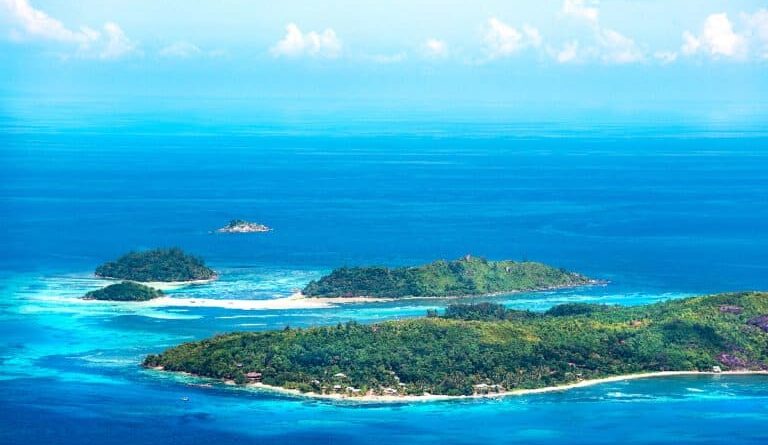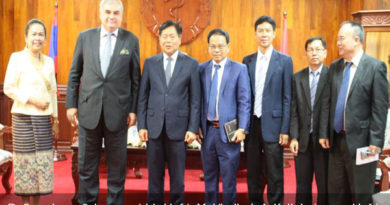SCI-TECH | Indian Ocean’s ‘twilight zone’ life exists ?
Islands in the Indian Ocaen
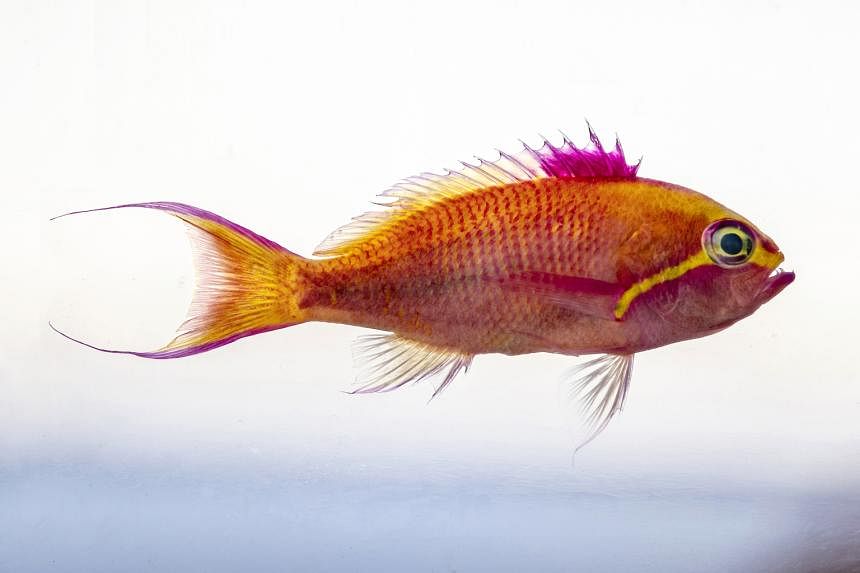 This fish, a potential new species from a deep coral reef, was discovered by Brazilian scientist and Rolex Awards for Enterprise Laureate Luiz Rocha at a depth of 110m below the surface. PHOTO: ROLEX/FRANCK GAZZOLA / JAN 26, 2023, 4:00 AM SGT
This fish, a potential new species from a deep coral reef, was discovered by Brazilian scientist and Rolex Awards for Enterprise Laureate Luiz Rocha at a depth of 110m below the surface. PHOTO: ROLEX/FRANCK GAZZOLA / JAN 26, 2023, 4:00 AM SGT
In Singapore, more than 250 species of hard corals support over 200 species of sponges, 120 species of fish and a variety of other marine life. The Republic is also the only major city where coral reefs can be found within 45 minutes of the city centre.
Across the world, about one billion people benefit from coral reefs directly or indirectly, for example through income from tourism, or because the reefs provide coastal protection.
.
Find and protect new species – that’s the mission of scientist and Rolex Awards Laureate Luiz Rocha’s groundbreaking deep-dive expeditions
.
However, while some coastal reefs such as the Great Barrier Reef are famous worldwide, a “twilight zone” of unexplored reefs known as mesophotic coral reefs lie deep below the Indian Ocean’s surface in the Maldives.
Ads by:
Memento Maxima Digital Marketing
@[email protected]
SPACE RESERVE FOR ADVERTISEMENT
.
Aiming to shed light on this ecosystem is Professor Luiz Rocha, the Curator and Follett Chair of Ichthyology (the study of fishes) at the California Academy of Sciences in the US. The 39-year-old Brazilian scientist is carrying out a series of groundbreaking expeditions to survey these reefs and find new species, to make the case for their protection.
.
.
He has already completed the first step in his underwater expedition in the Maldives’ Rasdhoo Atoll, during which he discovered eight new species of fish, more than he has discovered on any previous expedition.
He has planned two more expeditions, all with the support of the Maldives’ Ministry of Fishes and the Maldives Marine Research Institute.
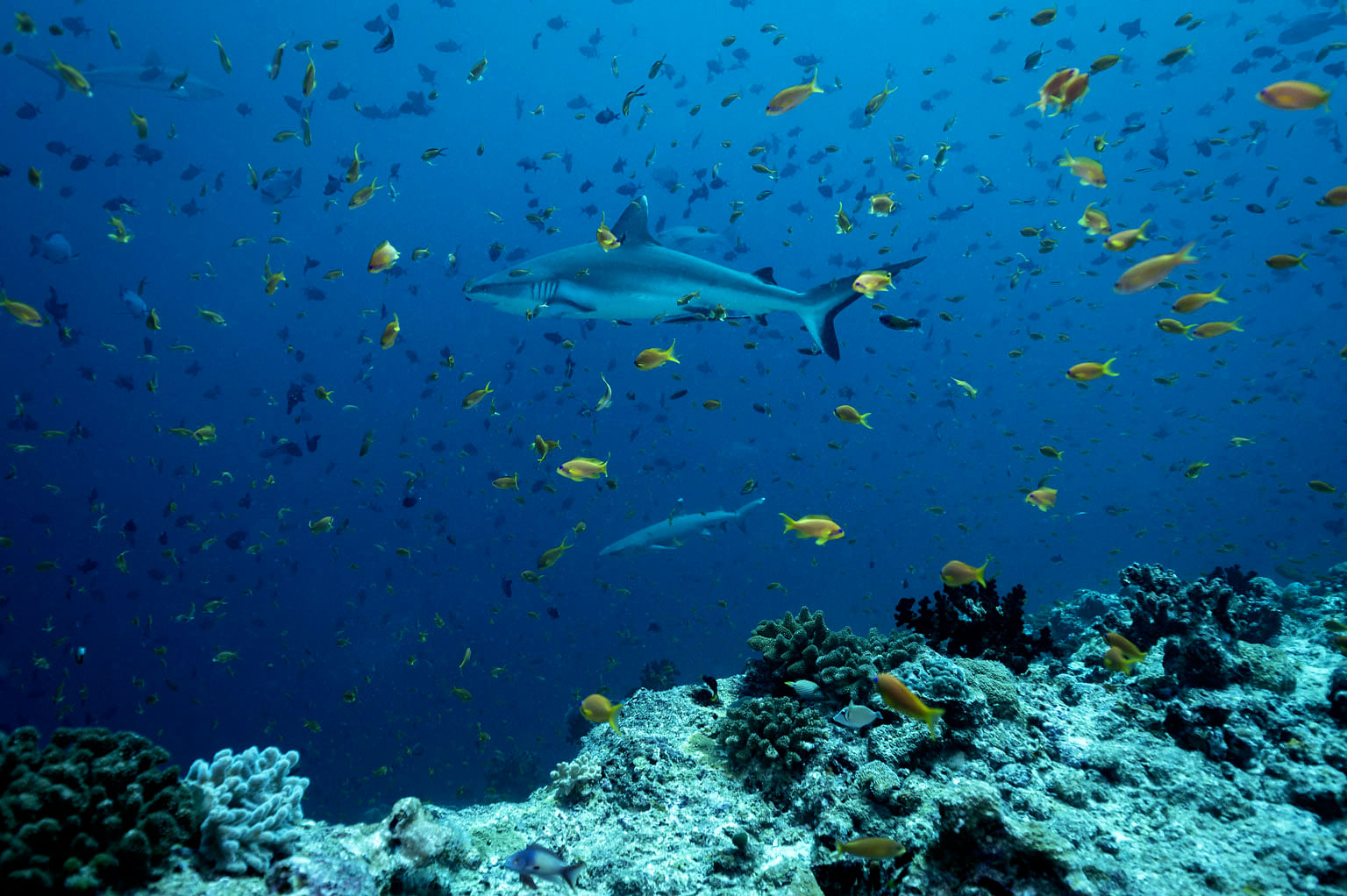
.
The Maldives government is keen to learn more about the reefs and the sea life they sustain, as its national income depends on coral tourism and fishing. “Even in places like the Maldives, most of their deep reefs are not protected because the government does not, for the most part, even know they are there,” Prof Rocha says.
.
Ads by:
Memento Maxima Digital Marketing
@[email protected]
SPACE RESERVE FOR ADVERTISEMENT
.
Diving into the deep
Prof Rocha has been fascinated by marine life since his childhood, when he grew up near the sea in Brazil. “I decided to be a biologist when I was just five or six. I’ve always had this attraction to going out in the ocean and admiring marine life,” he recalls.
He started diving as a teenager, and mastered the advanced technical skills needed for deep dives about 20 years ago. He has clocked over 6,000 hours underwater and undertaken over 70 scientific expeditions, leading half of them.
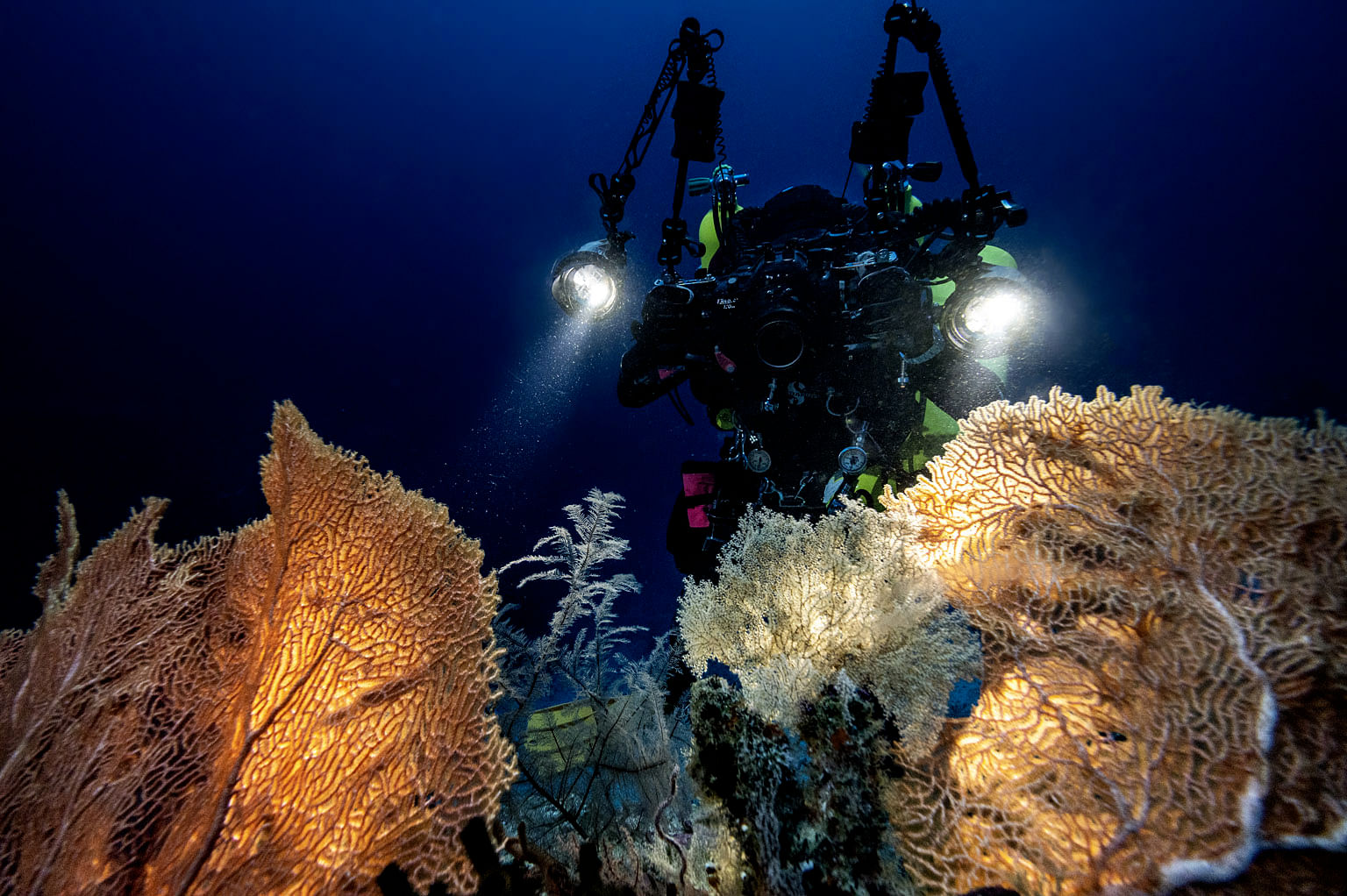
.
Ads by:
Memento Maxima Digital Marketing
@[email protected]
SPACE RESERVE FOR ADVERTISEMENT
.
His previous research in the Philippines and Brazil is already directly influencing the countries’ design and monitoring of Marine Protected Areas, which have restrictions on human activities for conservation purposes.
He has also published over 150 peer-reviewed research papers, given more than 200 presentations at conferences globally, and evaluated the conservation status of over 500 fish species for the International Union for Conservation of Nature.
During his latest expeditions in the Maldives, he will also research the mesophotic reefs’ ability to shelter at-risk species from shallower reefs that are threatened by global warming. His work will provide valuable data about the ecosystem’s conditions and temperature changes over extended periods too.
.

.
Ads by:
Memento Maxima Digital Marketing
@[email protected]
SPACE RESERVE FOR ADVERTISEMENT
.
He selected the Indian Ocean, where the Maldives is, for the expeditions as it is the least explored region when it comes to reefs that are at a depth of 100m to 150m. The scarce information available on deep reefs is from studies done in the Pacific and Atlantic Oceans.
“Human impacts, global climate change – everything is damaging the coral reefs of the world. There’s this urgency to protect them because if we don’t, we’re going to lose one of the most diverse ocean ecosystems even before we get to know it,” says Prof Rocha.
The presence of atolls in the Maldives means that mesophotic reefs are there too – as Prof Rocha says: “Even though no one has seen them before, we know they are there.”
.
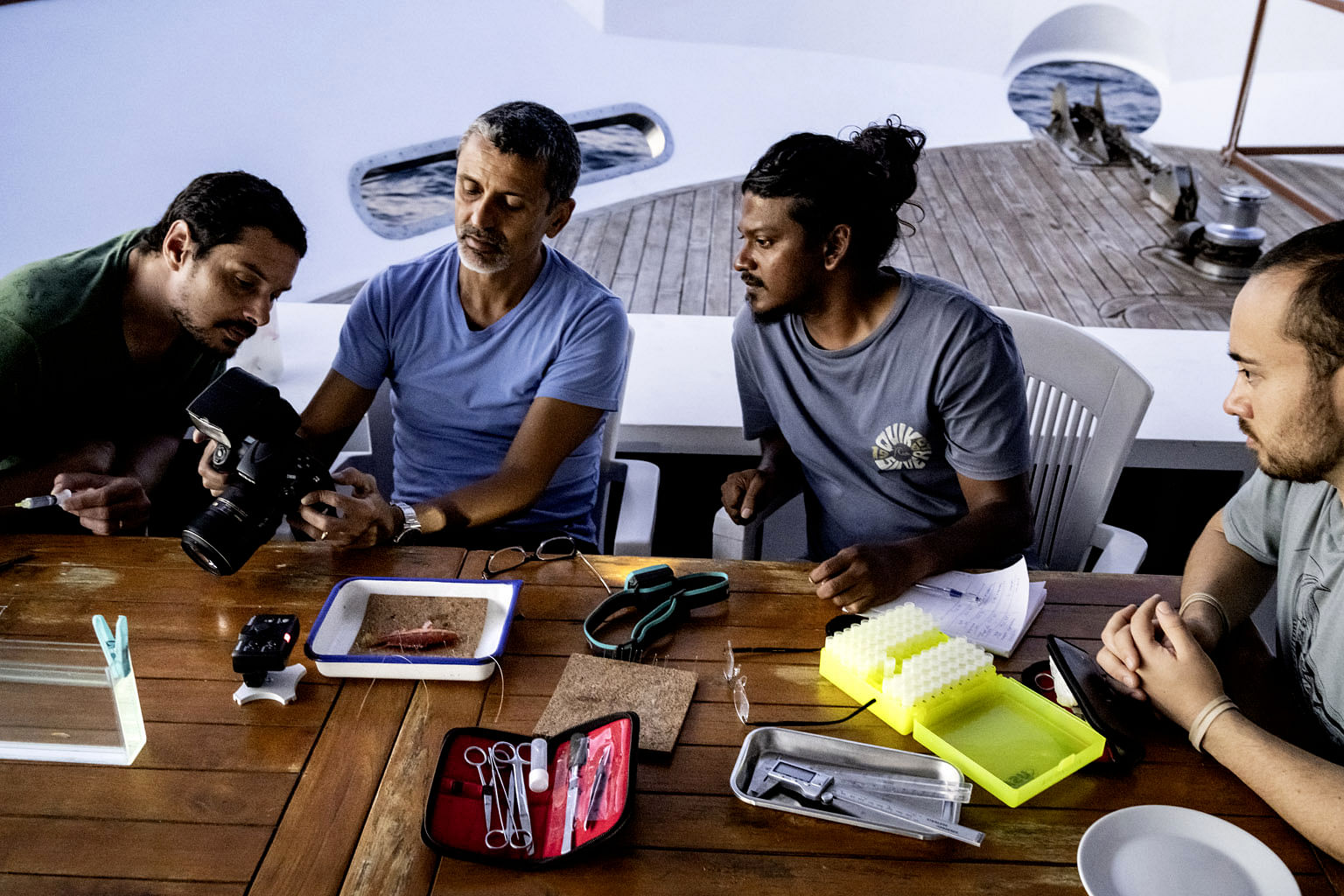
.
Ads by:
Memento Maxima Digital Marketing
@[email protected]
SPACE RESERVE FOR ADVERTISEMENT
.
His findings so far have only fuelled his fascination with the reefs. He shares: “I want to protect them because they are unique products of an evolutionary process that took millions and millions of years. To me it is like art.”
In 2021, Prof Rocha won a Rolex Award for Enterprise for his project to dive in the Maldives’ Rashdoo Atoll. As one of the five Laureates, he received from the Swiss watchmaker Rolex funding and worldwide publicity to assist with his other projects.
Rolex has supported pioneering explorers pushing back the boundaries of human endeavour for nearly a century. The company has moved from championing exploration for the sake of discovery to protecting the planet, committing for the long term to support individuals and organisations using science to understand and devise solutions to today’s environmental challenges.
This engagement was reinforced with the launch of the Perpetual Planet Initiative in 2019, which initially focused on the Rolex Awards for Enterprise, as well as long-standing partnerships with Mission Blue and National Geographic Society.
The initiative now has more than 20 other partnerships in an expanding portfolio. They include, for example, Cristina Mittermeier and Paul Nicklen, Rewilding Argentina and Rewilding Chile, offspring organisations of Tompkins Conservation, the Under The Pole expeditions, the Monaco Blue Initiative, and Coral Gardeners.
.
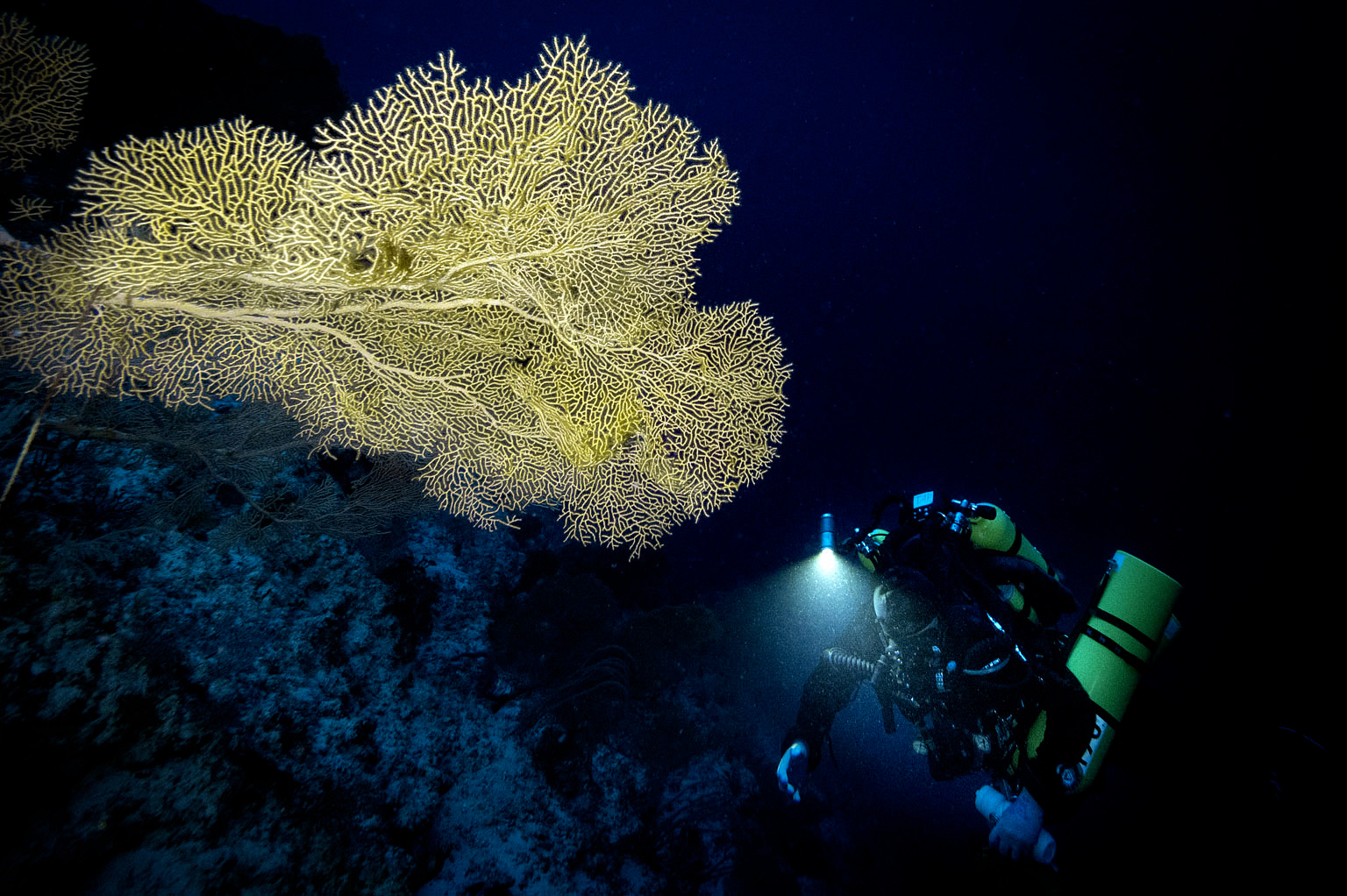
.
Ads by:
Memento Maxima Digital Marketing
@[email protected]
SPACE RESERVE FOR ADVERTISEMENT
.
Rolex also supports organizations and initiatives fostering the next generations of explorers, scientists and conservationists through scholarships and grants, such as Our World-Underwater Scholarship Society and The Rolex Explorers Club Grants.
“The project really embodies the spirit of exploration, discovery and conservation integral to Rolex,” Prof Rocha says. He is optimistic that his Award will bring much more than funding, by attracting global publicity that will give him the status to interest other organisations and media, helping to build the case for deep reef protection.
Furthermore, he believes that his highly diverse team will prove to be a model for others, demonstrating “that everyone can become an ocean explorer”.
We The Earth is a partnership between The Straits Times and Rolex and its Perpetual Planet initiative. Rolex Awards for Enterprise Laureate Luiz Rocha is a stellar example of the many individuals who are doing their part to solve the issues earth faces.
.
IN PARTNERSHIP WITH ROLEX
.

Ads by:
Memento Maxima Digital Marketing
@[email protected]
SPACE RESERVE FOR ADVERTISEMENT
.

